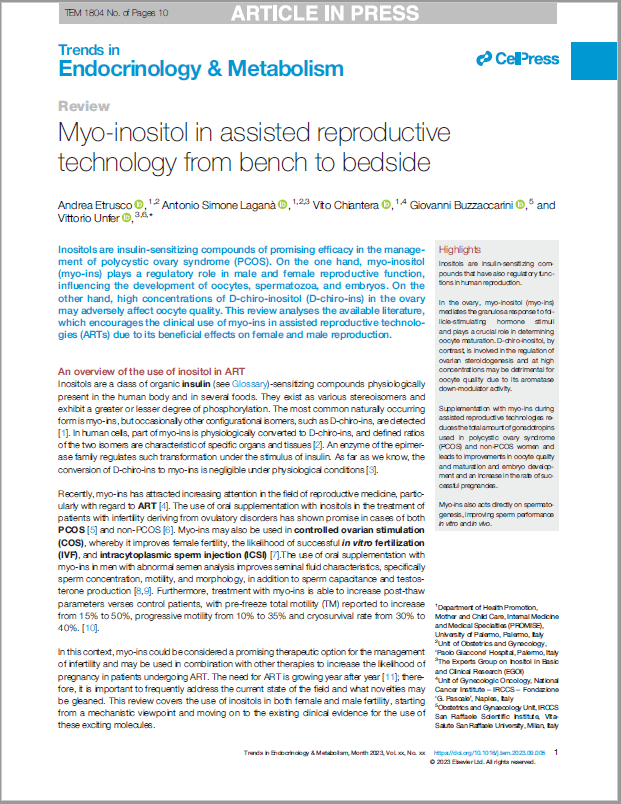Authors:
Andrea Etrusco, Antonio Simone Laganà, Vito Chiantera, Giovanni Buzzaccarini, and Vittorio Unfer
Inositols are insulin-sensitizing compounds of promising efficacy in the management of polycystic ovary syndrome (PCOS). On the one hand, myo-inositol (myo-ins) plays a regulatory role in male and female reproductive function, influencing the development of oocytes, spermatozoa, and embryos. On the other hand, high concentrations of D-chiro inositol (D-chiro-ins) in the ovary may adversely affect oocyte quality. This review analyses the available literature, which encourages the clinical use of myo-ins in assisted reproductive technologies (ARTs) due to its beneficial effects on female and male reproduction.
Highlights
Inositols are insulin-sensitizing com-pounds that have also regulatory func-tions in human reproduction.
In the ovary, myo-inositol (myo-ins) mediates the granulosa response to fol-licle-stimulating hormone stimuli and plays a crucial role in determining oocyte maturation. D-chiro-inositol, by contrast, is involved in the regulation of ovarian steroidogenesis and at high concentrations may be detrimental for oocyte quality due to its aromatase down-modulator activity.
Supplementation with myo-ins during assisted reproductive technologies re-duces the total amount of gonadotropins used in polycystic ovary syndrome (PCOS) and non-PCOS women and leads to improvements in oocyte quality and maturation and embryo develop-ment and an increase in the rate of suc-cessful pregnancies.
Myo-ins also acts directly on spermato-genesis, improving sperm performance in vitro and in vivo.

